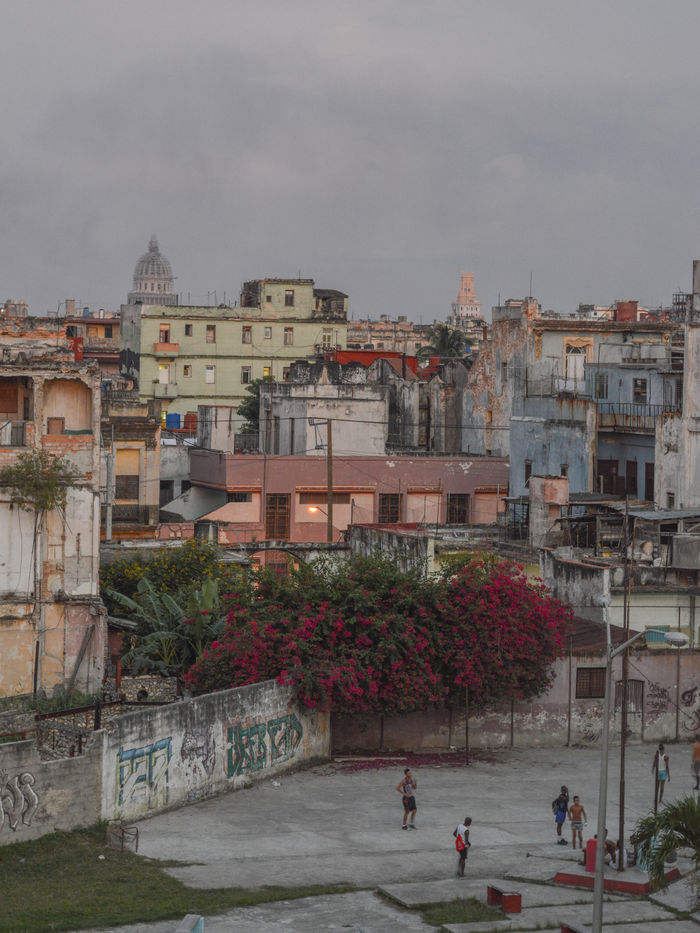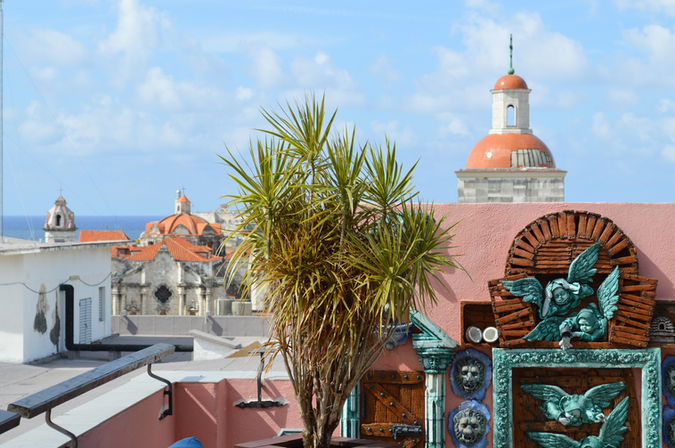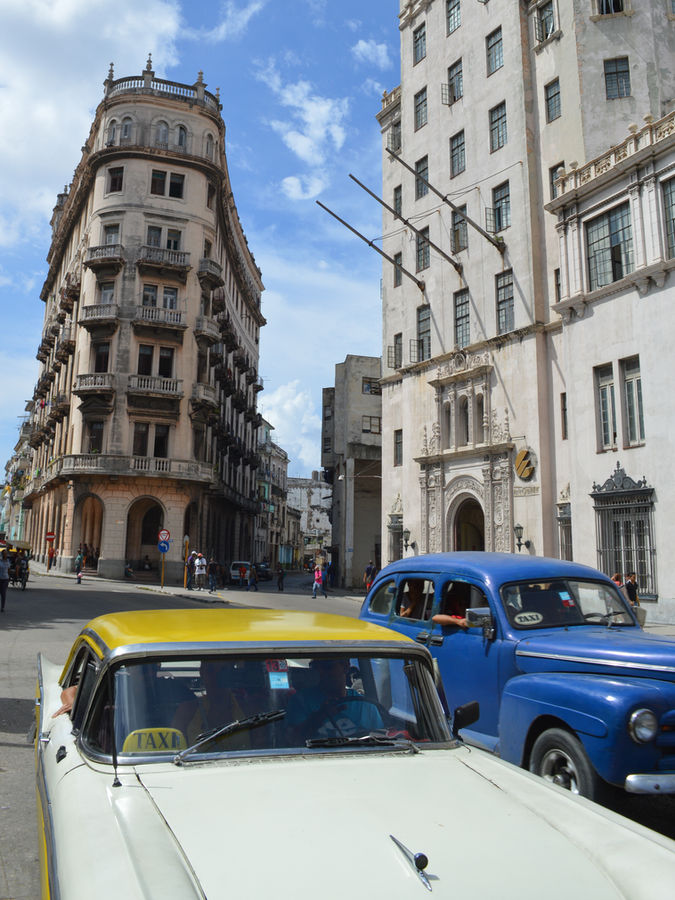Slow change is hard to see. Transformation is a blurry wave, unlike the crisp ripple of a sudden revolutionary fist. Maybe this shifting tide had been simmering for decades, but I guess ever since Castro handed over business to the other Castro in 2008, Cuba’s opening felt somewhat tangible. Rumor had it that the iconic, isolated island regime would loosen the policy grip on its people and that sooner or later there would be an old and a new Cuba, the before and after. Perhaps December 2014, the dawn of the Cuban thaw, marked the tipping point—the first act of the last wriggle, the stretching of a cocoon that was too tight and worn too long. Moving, shaking, breaking. No going back.
"...quintessential life lessons distilled from rum and rumor."
So where was Cuba two months earlier—in October 2014—when I visited? On the cusp, I’d say, remarkably ambiguous and undecided. That Cuba was many things, and many of the things that Cuba was intersected in Havana’s streets. Night and day, the island capital seemed both culture cocktail and cocktail culture, blending an almost irresistible variety of tangy ingredients: songs soaked in local anecdotes, colorful dance dispelling drab despair, cars and architectures from another time and place, quintessential life lessons distilled from rum and rumor. The Cubans shared their drinks and tales generously. With their voices drenched in patriotism, they raved about life in the socialist reign under Castro, declaring the biggest Caribbean island loudly and proudly the most wonderful country in the world. It felt like they meant it. Then, hiding their words in an equally passionate whisper, they detailed the pitfalls of communism and the shortcomings of their government, lamenting their lives. And it felt like they meant it.
"Certainly, the meager sample size of my informal study over rum and laughter limited the significance of the results significantly, but somehow everyone I encountered appeared torn right along the same line between their heart valves..."
What was I to believe, navigating this ambivalent cigar smoke? Were these contradictory feelings towards the motherland equally valid and strong? Was the socialist utopia as rewarding as it was insufferable? Certainly, the meager sample size of my informal study over rum and laughter limited the significance of the results significantly, but somehow everyone I encountered appeared torn right along the same line between their heart valves, as though the whole nation was riddled by a societal manic depression. The noble communist ideal seemed to delight the islanders as much as its strict decrees tormented them, creating a collectively equivocal feeling.
The controversy was evident and omnipresent: Cuba was said to have the best educational system and health care in Latin America; kids didn’t suffer malnutrition; the state provided; the sun shone. BUT. No matter how hard you’d work, how invested or passionate a teacher or doctor you’d be, your paycheck landed in the ballpark of $50 USD and every consumerist desire beyond the state-provided ration was knocked far out of reach. People in the streets would ask foreigners for clothes, a pen, or other everyday commodities that weren’t easily accessible to them. Still, "el Cubano inventa," they said—the Cuban comes up with something, finds his way around the odds, reinvents himself in the light of deprivation.
During my days in Havana, I saw the intertwined political and economic implications of the Marxian ideal branch into many contradictory experiences for Cubans and visitors. The freedom of drinking, smoking, dancing and singing in the streets was a given that came in handy for buoyant Latin American good timers; but, freedom of speech was severely restricted and internet access more limited than in China. First concessions to private entrepreneurship had been granted; but, guesthouses and hostels weren’t really a thing, so that I ended up staying at someone’s home informally before moving to a clandestine hostel. And then there were the two! circulating currencies, making every purchase either very expensive or very cheap. A cab from the airport to the city center was around 50 CUC (the exact equivalent of $50 USD); but, the local bus got you there for a couple of cents in Moneda Nacional, which was an amount so little that it couldn’t be expressed in US dollar dominations. That Moneda would also get you a huge pizza for less than a dollar at back-alley restaurants in the old quarter, while bars and restaurants along the famous Calle Obispo charged fancy CUC prices for their fancy names.
































